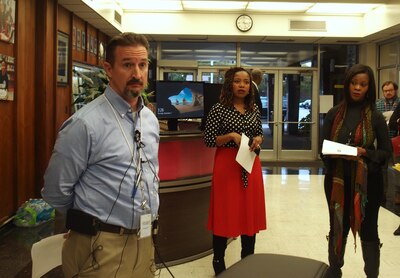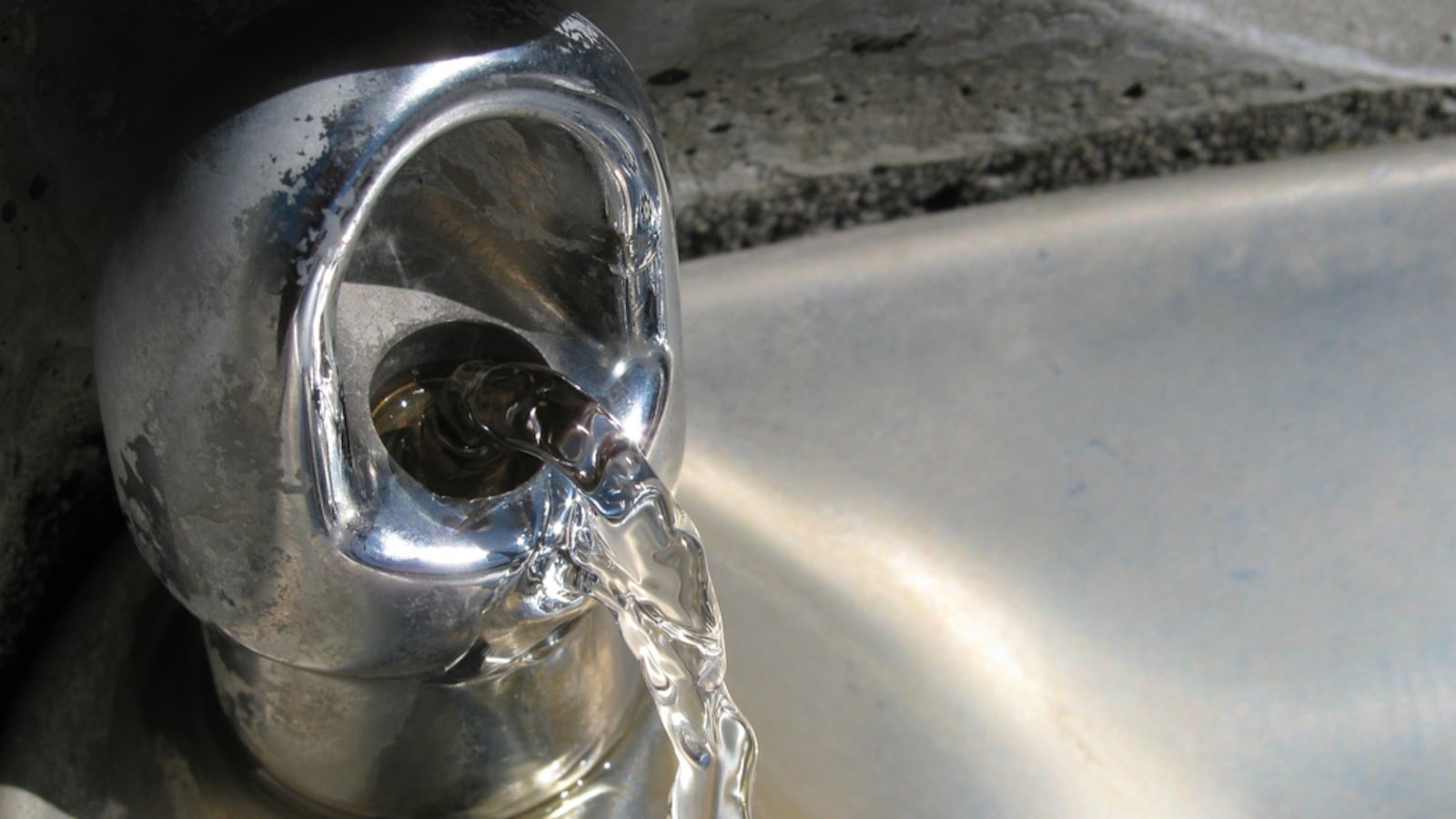Update: Altogether, Shelby County Schools identified 39 schools that had at least one water source with high levels of lead.
One day after Chalkbeat reported that 10 Memphis schools had high lead levels, Shelby County Schools officials released a list of 14 additional schools with at least one water source that has tested positive for unsafe levels of lead.
District officials told reporters Thursday that they are waiting on test results from samples at 30 more schools and should have more information on Monday.
So far, district leaders said 39 water samples out of 2,300 have come back above state’s threshold for safe water, which is 20 parts of lead per billion parts of water. (The federal limit is 15 parts per billion.) Tennessee law mandates that districts annually retest samples between 15 and 20 parts per billion, but does not require that districts remove those water sources. The tests, done by a contractor, cost the district about $100,000, which was not provided by the state.
The newly released list is the second of three waves of results district officials expect from testing done during fall break last month. Chalkbeat first obtained water test results from the Tennessee Department of Health in an open records request. Shelby County Schools on Thursday announced another set of test results the district received after Chalkbeat’s story published.
A water fountain at Idlewild Elementary School that tested at 30 times the state’s threshold had the highest lead level in the second wave of results.

Anthony Krone, the district’s risk manager, said the concentration of lead was likely higher in water fountains that haven’t been in use.
“We have found from our experience that if the fountain is not used, it has a greater risk of lead buildup in the water content,” he told reporters Thursday, adding the district is the process of removing those water sources.
Krone said the district did random testing in 2017 as a precaution, before it was mandated by state law. The 2017 samples showed a similar percentage of unsafe water sources, Krone said.
The district sent its initial test results, which included mostly water fountains at 10 schools, to the Tennessee Department of Health last week. The results released Thursday during a press conference were mostly from water fountain tests.
Below is a searchable table of water test results that came back at levels higher than 20 parts per billion. (Source: Tennessee Department of Health) Story continues below the table.
The state mandated water tests in schools in a 2018 law introduced by current Shelby County Mayor Lee Harris in response to the water crisis in Flint, Michigan, where thousands of children were exposed to toxic levels of lead and school systems saw a spike in students with disabilities as a result. Nationally, black children from low-income families on average have higher concentration of lead in their blood compared to their peers, according to the Environmental Protection Agency.
For children, ingesting even low levels of lead can interfere with brain development, cause aggressiveness or inattentiveness, and impede academic achievement, according to the federal agency.
More than 100 schools across Tennessee constructed before 1998 so far have been found to have high levels of lead. Most Memphis schools are more than 40 years old. The federal government banned using lead in new construction in 1986, but did not mandate removing lead water pipes in older buildings.
There is no known safe level of lead in water, according to the federal agency. That’s why Chet Kibble, a former utilities worker who started the Memphis & Shelby County Lead Safe Collaborative, says the testing does not go far enough.
“Any fountain that has lead coming out of it needs to be taken out of service no matter what the level is,” he said. “We have to have zero tolerance with lead.”

Mayor Harris, a former state senator who introduced the water testing bill, said the increase in awareness shows that the law is working. He plans to meet with health department officials this week to provide guidance for families who want to get their child tested for lead contamination.
“We wanted to make sure that Tennessee was on the forefront of protecting kids and families,” Harris told Chalkbeat on Thursday. He noted that the state is one of about a dozen in the nation that mandate lead testing in schools, and Shelby County is one of the few that have a local board focused on lead prevention.
LaTricia Adams, the cofounder of Black Millennials 4 Flint in Memphis, said parents should ask their doctor about how their children can get tested if they believe their children have come in contact with contaminated water.
“I know this is a really scary subject, but it’s also really important,” she said. “This is not a Memphis issue. It’s a national issue around infrastructure. We have to make sure we’re moving with the times and not allowing our fixtures to crumble.”
For more information about the health effects of lead, visit the Environmental Protection Agency’s website. Below is a district FAQ.

